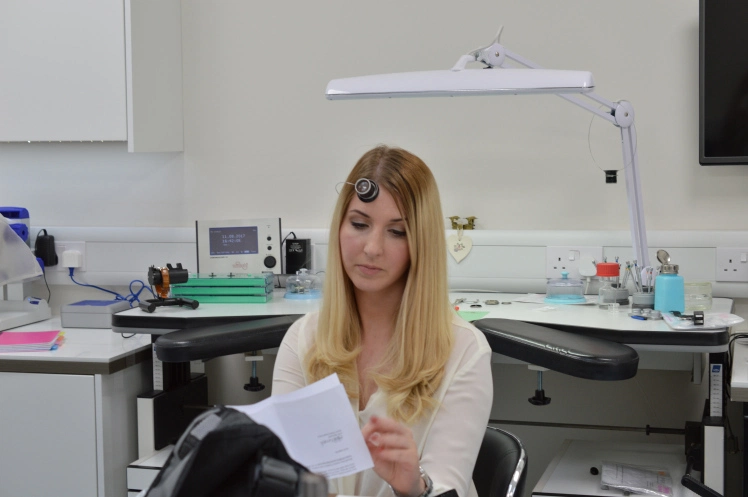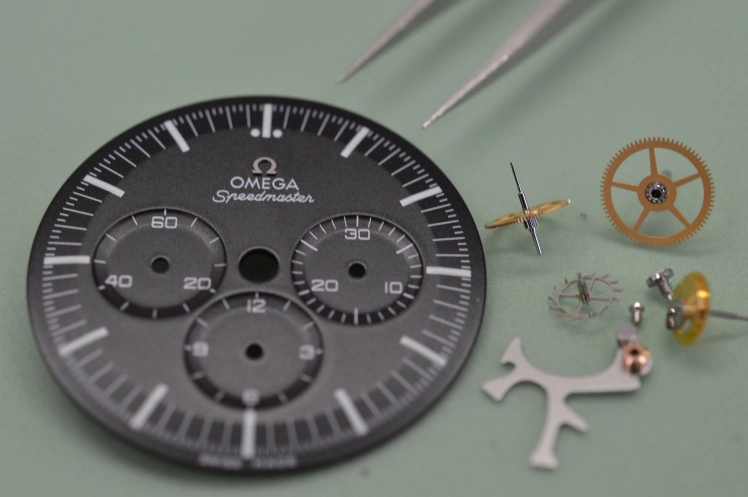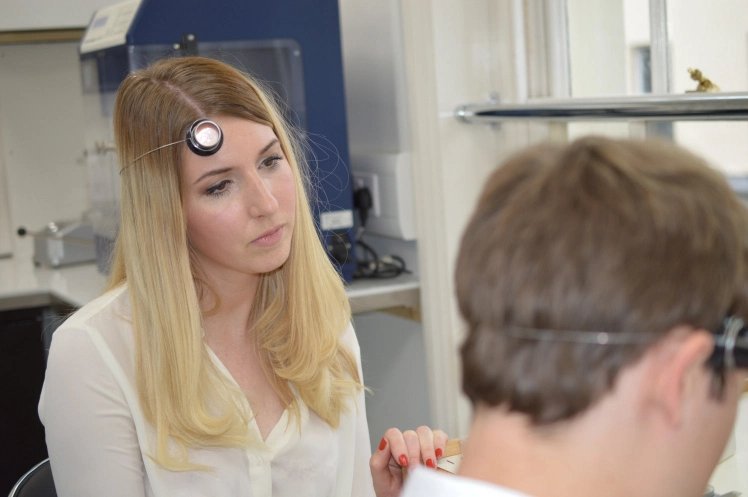Beards are moving the artisan trade of watchmaking into the 21st century: Serena Gough, Watchmaker.

How would you describe what you do?
It’s not easy to describe, the simplest definition is breathing new life into a watch. This encompasses so many things. When a watch movement is new, each part has been painstakingly finished to the smallest tolerance, and I restore that to make sure that each aspect of the watch is as close to that original state as possible and will therefore function to it’s optimum level.
When did you first become interested in watch making?
I think I only truly begun to appreciate what watchmaking was at watchmaking school. Before that I was fascinated by how something purely mechanical could keep time so accurately but I didn’t fully appreciate how much care, attention and accuracy went into it, and also how many variables there are into making a fully functioning watch, and how many skills are needed to make it a reality.

What makes you passionate about what you do?
There really are so many things. There is a real beauty in a mechanical watch movement, it almost has a heartbeat, and the fact that this beauty comes from centuries of men and women constantly trying to improve on what has already been achieved. I think it’s good to remember that these watch movements originated from lumps of metal and stones and that we have crafted them into something micro-mechanical that performs so accurately.
What would you say is your biggest achievement?
Passing my WOSTEP exam (Watches of Switzerland Training and Education Programme) at the British School of Watchmaking was a huge achievement for me. I remember thinking in my first week there, what have I let myself in for? It was extremely intense and it really was blood, sweat, tears and sheer determination that got me through, I learnt things there that I couldn’t have done anywhere else and I will always be grateful for that.

What has been the most difficult part?
Learning how to communicate about what watchmaking is, to both the public and retail staff. There is such an unnecessary barrier there, that almost makes watchmakers the keeper of the keys, and I think in historical trades like watchmaking, it’s important we keep them alive, by sharing our passion and knowledge. I hope this will inspire young people to want to join the industry and ensure an exciting future for horology.
What has been the most enjoyable part?
Every day at the bench is enjoyable! I’ve worked on some truly amazing watches and I feel very privileged to have done so. Right now, the most enjoyable part is teaching, I have an apprentice and in the short time he has been with me, seeing him develop his skills and understanding is very rewarding.

How important would you say getting a watch service is?
It’s extremely important, each of the parts inside a movement is susceptible to wear or fatigue and servicing a watch ensures that these parts are examined and corrected, and the functionality of the watch is restored or prolonged. Most watches are extremely sentimental to clients and mark a special moment in their lives, so we are ensuring that that moment lives on for them. It’s a wonderful position to be in, to give somebody that.
What’s been your most awkward situation with a watch and how did you deal with it?
While I was training, I was asked to repair a pocket watch by someone I knew. It belonged to their great, great grandfather, and was a family heirloom. It was one of the nicest pocket watches I’ve ever worked on, and I lost the hairspring!! Each hairspring is paired with one balance wheel, and cut to the correct timing point. They are all different strengths and no two are the same. One of my lecturers, gave me a box full of old hairsprings to see if I could get one to match up. They used to be made from a material we don’t even use now, so I couldn’t get hold of another one, and as they’re generally only about the width of human hair, you don’t get many attempts at making one. As I pinned and cut the replacement, I don’t think I took a breath and my heart was in my mouth. Thankfully it worked really well, because I never did find the original!
What’s the funniest moment you’ve had since working at Beards?
There have been an awful lot of funny moments at Beards, it’s a really fun team. There aren’t many I feel brave enough or are tame enough to share, but I have the incredible misfortune of people walking into a room just as I’m saying something which can totally be taken out of context. One story I can share is we have a lady who works in our finance department, Celia, who people outside the business don’t hear too much about because she’s in the offices. She and I are waging constant war against each other, whether it be, throwing things at one another, pulling hair, all sorts of things. I start work before she does, so one morning I went into her office and put a post-it on the bottom of her mouse so it didn’t work. I carried on and forgot all about it. A couple of hours later, much to my amusement, I walked past her office to hear her at her wits end on the phone to our IT support company. So I walked in, turned her mouse over and took off the post-it. I won’t repeat her slurry of abuse!
At Beards, we service whenever possible all in house. How important do you believe this is?
I believe it’s incredibly important. We’ve just invested in expanding the workshop for this very reason. We have to be accredited with each watch brand to be able to carry out any interventions in house, we’re just in the process of becoming accredited with Cartier which is fantastic, meaning on top of, Omega, Tag Heuer, Longines, Rado and Tissot, we’ll soon be able to undertake Cartier repairs in-house too. We can offer a better service to our clients this way, instead of just being a number we can get to know the clients, what they expect from their watch and we can offer them advice and explain exactly what they need and why, and often we’re able to complete the jobs in a shorter timeframe which means that they’re not without their watch for as long.